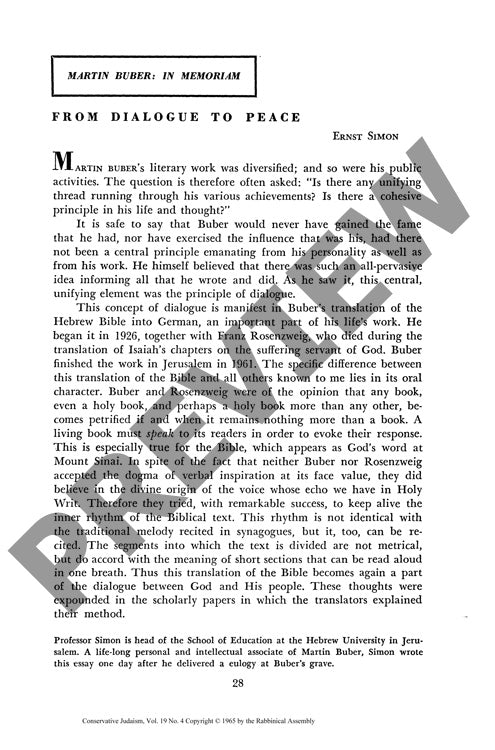From Dialogue to Peace Martin Buber
Couldn't load pickup availability
This memorial essay examines the unifying principle underlying Martin Buber's diverse literary works and public activities, arguing that the concept of dialogue constituted the central organizing element of his thought and practice. Through analysis of Buber's major contributions, including his German translation of the Hebrew Bible with Franz Rosenzweig, his interpretation of Jewish history, and his writings on Hassidism and Zionism, the study demonstrates how dialogical thinking permeated all aspects of his intellectual endeavor. The methodology employed involves textual analysis of Buber's works and their practical applications, particularly his famous "I-Thou" versus "I-It" relational framework. The investigation reveals how Buber's Bible translation emphasized oral character and living dialogue between God and humanity, while his historical analysis distinguished between legitimate dialogical movements and dominant organizational structures in Jewish history. The study shows how Buber viewed Hassidism and early Zionism as authentic expressions of dialogical principles, and traces the political implications of his philosophy through its influence on international figures like UN Secretary-General Dag Hammarskjöld. The findings conclude that Buber's dialogical philosophy offered practical solutions to contemporary problems of mass communication, mutual distrust, and political hostility, positioning dialogue as essential for peace-building and human understanding in an era of existential mistrust.

More Information
-
Physical Description
-
Publication Information
Published 1965
ISBN
-
Publication Credits
Ernst Simon

